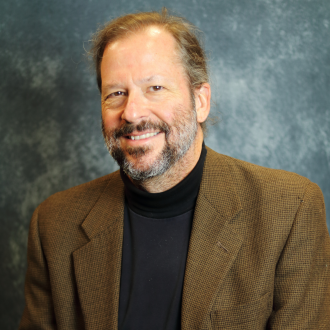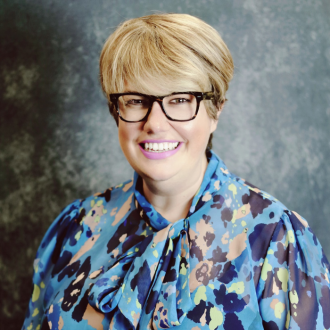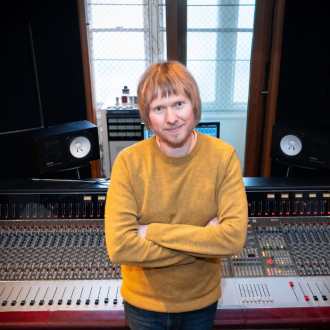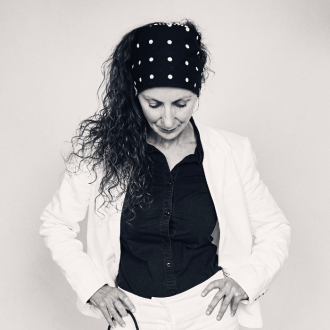- Undergraduate
Performance and Recording with Foundation Year BMus (Hons)
Overview
Why study at the University of West London?
- Ranked 30th university in the UK - The Guardian University Guide 2025
- Our Music courses are ranked #2 in London for modern universities* - Guardian University Guide 2025
- Number 1 London university for overall student satisfaction - National Student Survey 2024**
- Best university for Student Experience and Teaching Quality in the UK - The Times and Sunday Times Good University Guide 2024
Would you like to increase your versatility as a recording artist? Are you a musician who wants to become a music producer?
This music performance and recording degree course has been developed in response to current demands from the music industry.
It aims to develop your skills as a performer and writer and your technical knowledge, giving you essential industry know-how to help build your music career.
During your studies, you will have access to one of the largest audio complexes in Europe, which includes more than 20 professionally equipped music studios, acoustically designed recording studios and multi-performance production studios.
View some of our students' recent work.
Foundation Year
The foundation year course is designed to equip you with the skills and knowledge you need to continue onto your Honours degree. You will study a range of subjects that will underpin your future study and also gain valuable experience of university life, with full access to campus facilities. Successful completion of the year allows you to progress straight onto Level 4 of this course. Please note that a £2000 Path to Success bursary is available to all UK foundation year students, which is non-repayable.
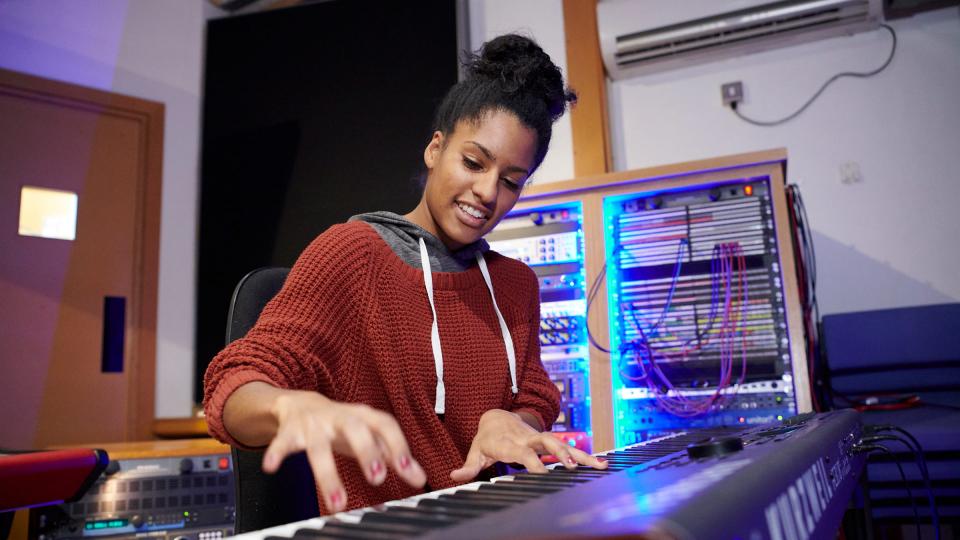
Select your desired study option, then pick a start date to see relevant course information:
Start date:
If your desired start date is not available, try selecting a different study option.
Why study Performance and Recording with Foundation Year with us?


What our students say…
The course has prepared me perfectly, we've done everything we possibly could for our careers. For me, the course has been the perfect mix of playing, recording and working in the studio. Modules have been flexible and I have gained confidence in myself. When I started I was nervous performing, but now the thought doesn't even cross my mind.
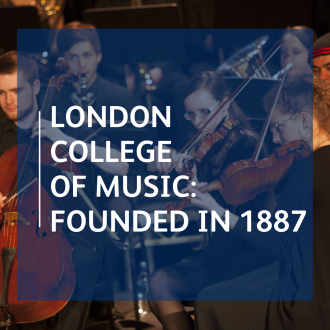
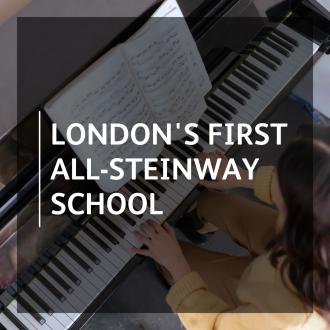
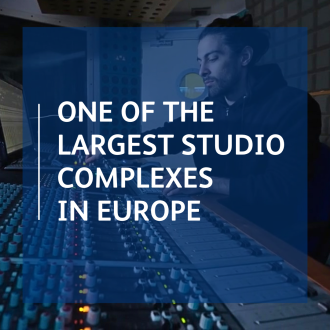

Course detail & modules
The BMus (Hons) Performance and Recording degree will convert you into a future-driven music professional with thorough, industry-facing experience.
At UWL we recognise that modern recording artists are more than just musicians who stand on a stage. As such, you will learn what it means to become a studio engineer, a self-promoter, a songwriter and arranger, a content creator, and a skilled manager of your career aspirations.
As a performer, we aim to broaden your perspective on what it means to perform in the future using practical and technologically enhanced performance techniques.
The following are a few key points that we celebrate in this music performance and recording course at UWL:
- the development of musical technique through specialised tuition in your chosen instrument
- the exploration of recording and songwriting as both an art form and an employable skill
- the recognition that successful musicians are also skilled content creators
- the artist development that generates inspiring performances that represent the future of live music.
The BMus (Hons) Performance and Recording course works with visiting professionals who give talks on a range of subjects from recording techniques and composition to music management, publishing, and new media approaches.
You will also become a part of the London College of Music community where the course shares close relationships with the music business and technology students. During this music performance degree, you will form friendships and professional partnerships that will enrich your musical projects for the rest of your careers.
Foundation Year
There are many reasons for joining a foundation year course; you may not have the exact subjects or grades at A level to meet the entry requirements, you may have been living abroad or want to change direction with your career. Whatever your starting point, the foundation year offers a firm grounding in the skills and knowledge that you will need to get the most from your studies and thrive at University. Successful completion of the foundation year allows you to progress straight onto Level 4 of this course.
Course subject to approval
Compulsory modules
-
Study Skills for Success
This module will enable you to read critically, present an argument, and distinguish between the quality and suitability of materials. It will prepare you to use and evaluate a range of evidence sources throughout your degree.
-
Sound Production Workshop
This module will provide the fundamental skills required to be successful in analogue studio-based work, exploring technique through supported practice. The module will focus on the fundamental skills of signal routing between hardware devices typical in modern studios.
-
Introduction to Performance
-
Personalised Learning
The Personalised Learning module is intended to equip you with the study skills needed to successfully progress onto level 4, the first year of undergraduate study. Tutor group sessions are an integral part of the module, where you will consolidate your learning and frame it in the context of your subject area. The module will focus on various aspects of study skills, such as those skills related to reading and writing, learning approaches, problem-solving techniques, critical thinking, researching, referencing, plagiarism, legal research and time management.
-
Performance Studies
-
Introduction to Contemporary Production Studies
Making music involves understanding how it works – the sounds and the structures – and in this module you will examine the way that others have made music and use some of those ideas to make your own productions. You will explore musical structure, rhythm, melody, harmony, instruments and how computers represent those sounds on a screen.
Compulsory modules
-
Performance for Recording
Performance for Recording will help students develop the required skills needed to perform in a studio recording environment to a high standard. The module will help students to develop the playing skills specific to the studio environment and increase student’s understanding to different recording and musical approaches. Performance for Recording runs in Semester 1 and is an introduction to the performance strand in the learning journey. It covers a comprehensive overview of contemporary studio practice and the specific concepts relevant to performing for the recording process.
The module will extend listening, playing, and organisational techniques required to operate as an effective session musician. The module is also s fun introduction to the recording studio facilities at UWL. This module is also supported by extra instrumental lessons so that students can continue to develop their musical skills in their chosen instrument.
-
Audio Principles
Recording theory is a broad module introducing a variety of topics vital to the field of music technology. It also serves as a base for the more practical and technically orientated modules in the music technology degree courses at LCM/UWL. It is a key module designed to equip students with a grounding in the core knowledge and techniques germane to the disciplinary nature of the music technology courses.
The module aims to provide the student with a solid grounding in the theory, techniques and terminology associated with contemporary acoustic and digital recording practice, as well as ensuring a fundamental grasp of the basic physics of sound and sound propagation.
-
Understanding Creative Industries
Understanding Creative Industries is designed to give you an appreciation and knowledge of the development of the fundamental structures of the global creative industry structures. In doing this, you will obtain a comprehensive grounding in the key skills and knowledge appropriate to building, developing and maintaining a career in your chosen area of the industry. You will also receive a grounding in key figures within the industry and support organisations available to you to help in developing your professional careers.
-
Situated Performance
After the performance for studio module, students are encouraged to explore a range of different performance styles. Situated Performance runs in Semester 2 and is designed to enhance student’s interaction with different performance environments as well as different types of audience. The module will extend listening, playing, and organisational techniques required to operate as an effective performer while considering the limitations of different performance situations. Performance for Audience will help students develop the required skills needed to perform as an ensemble no matter where they are.
-
Songwriting and Arranging
Songwriting and Arranging is an introductory subject designed to give students advanced knowledge of music writing principles. The module covers three main areas relating to songwriting and arranging. These areas are lyric construction and form, arrangement fundamentals, and essential orchestration skills.
The module is broken into parts that assess both the construction of songs, as well as the digital tools that can be incorporated to enhance arrangements. During the first half of the module, students learn the skills required to understand great lyric writing and song structure, narrative themes and writer perspectives. The second half of the module is concerned with understanding fundamental instrumental arrangement. During the latter half of the module, students are introduced to skills and digital tools that can enhance the musical and textural content of their songs.
-
Studio Recording
Recording Practice will help you develop the required skills needed to operate studio recording technology to a high standard. The module will further the listening skills covered in Recording Theory and will increase your sensitivity to different recording and musical contexts. It covers a comprehensive overview of contemporary studio technology and the recording process.
The module will also extend ear-training techniques and examine each component of studio technology in detail. In addition, it will address how the techniques of recording are coupled to the technology, providing each student with a backbone of knowledge designed to help the recording demands of the second year.
Compulsory modules
-
Performance Artistry
Having completed the level 4 performance subjects, students move from the practical aspects of performing in a variety of settings to the more artistic exploration of what it means to be a performer. Performance Artistry is an advanced performance subject designed to develop students' understanding of their role as a content creator and a performer. As such, the module functions in a similar manner to a record label artist development (A&R) department. This module gives performance students a deeper understanding of their relationship to the music industry.
-
Recording Music
'Recording music' is an advanced-recording subject designed to develop the required skills to operate both physical and virtual recording technology to a higher standard. Students will engage in a combination of practical and theoretical workshops aimed at developing a fluency in recording planning and practice. The module aims to further develop students’ abilities to critically evaluate, and confidently produce musical recordings in a chosen style.
-
Understanding Music Publishing
This module is designed to develop the students’ understanding of music publishing, and the surrounding infrastructure that supports this important music revenue stream. Such associated infrastructure includes, collection societies, advertising agencies, and other musical trade bodies. It will investigate their membership, their roles, and their primary function within the industry of licensing songs and recordings, as well as, distributing income to intellectual property rights holders. At the end of this module, students will have a fundamental understanding of this often-invisible income stream.
-
Leading in Performance
At this point in the performance journey, students have learned to adapt to various settings and investigated their own artistic voice. Having learned these skills, the students now need to learn how to lead other musicians to achieve their artistic vision. Leading in Performance is a workshop-based module designed to assist students in achieving their musical leadership goals using a combination of group management and musical literacy skills.
This module will culminate in a scenario where students will lead a performance of two songs with only one rehearsal to prepare for the concert. The aim of this module is for students to assume leadership roles and drive a small team of musicians in an experience similar to that of a late-night TV show house band.
-
Research Methods for Performance
The module offers you the opportunity to:
engage with applied research methods using ethnographic, autoethnographic and theoretical approaches
critically reflect on your own creative practice through a process of data collection and stimulated recall
assimilate and reflect upon the creative practice and research activity of staff and postgraduate research students
use these research techniques in conjunction with academic reading to develop a research question that will form the basis for your level 6 major project module
effectively communicate ideas through a combination of verbal and multimedia presentation formats.
Optional modules
-
Business Skills for the Music Industry
This module looks at the key skills and abilities required for entrepreneurs to develop new business ideas in the creative industries. As new technologies and media converge, the need to understand how new concepts are generated is one of the key tools for contemporary and future creative industry practitioners. Generating successful business ideas is a process of creative thinking and a critical awareness of the business landscape.
This module will focus on both the theoretical and practical aspects of initiating and developing a creative enterprise in the modern marketplace. A study of entrepreneurial traits provides the framework for the module, which includes the development of a credible business idea and the presentation of a formulated and considered business plan.
-
Popular Music Teaching and Pedagogy
Through weekly lectures and breakout workshop groups, this module focuses on the area of instrumental and vocal teaching - an important skillset, and income stream, for the portfolio musician. Underpinned by an understanding of generic and music-specific pedagogic principles, each of the weekly sessions will focus on a particular topic or issue relevant to building a career as an instrumental or vocal tutor, including: constructing lesson and study plans; understanding and executing appropriate teaching methods to foster technical, creative and expressive skills in your pupils; developing effective communication skills; as well as acquiring an insight into establishing and running a successful teaching practice.
Compulsory modules
-
Performance and Recording Project
The performance and recording project is a self-directed module that allows students to showcase the skills and abilities developed during the previous years of study. The module spans the whole academic year and provides students with the opportunity to develop a recording and performance based on a particular stylistic interest. It is expected that the recording and performance is clearly related to the content of the course, and displays an understanding of how to record, perform, and launch music to a wider audience.
-
Performance for Audience
Performance for audience is a collaborative module that encourages students to stretch their musical boundaries and develop longer thematically connected musical performances. In this module students must generate 25-minute performances that both sustain performance energy and deliver a well curated musical experience for audiences. In this module students demonstrate a mastery of performance logistics, musical organisation, and audience engagement.
-
Recording Tools
Recording tools is an advanced Performance and Recording subject that focuses on implementing learned recording skills in the live performance environment. The aim of this module is to encourage students to develop technological additions to their performance in order to enhance the audio and visual spectacle of their established musical performance practice.
Students will engage in a combination of practical and theoretical workshops that assist them to develop performance augmentation skills that are suitable to their musical style. The module aims to enhance student performances and develop their ability to critically evaluate the tools and techniques available to create performances that extend beyond reciting the music to an audience.
-
Performance for Industry
Performance for industry is the culminating performance experience where level 6 students have the opportunity to demonstrate their mastery of performance to a panel of industry experts. Students will propose and design a performance event in consultation with the module tutor that represents their aesthetic journey as an artist and performer.
-
Promoting Your Career
Comprising of weekly lectures and breakout workshop groups, this module is designed to develop the level of personal entrepreneurial skills needed by a current day portfolio career musician. By examining and investigating current social and consumer trends of the creative industries, and how the commercial and entrepreneurial skills of a musician need to reflect and interact with this, each lecture will focus on a key element of the administration of artist management
Entry requirements
These can include:
- A-Levels at grades B and C (if you have two A-Levels) or grades D, D and D (if you have three), or above
- BTEC Extended Diploma with Merit, Merit, Pass
- Access to HE Diploma
- T-Levels
You also need GCSE English and Maths (grade 9 – 4 / A* - C) or Level 2 equivalents.
Additional entry requirements
We require you to have a minimum Grade 6 Performance (on your stated first instrument, or voice), alongside Grade 5 Music Theory and Grade 5 or 6 sight-reading.
If you do not hold these musical or instrumental grades, but feel you are at the required standard, you can still apply for this course. Your suitability will be determined through an audition which you will be required to attend. The audition will be informal and will also include a relaxed interview.
For advice and tips on auditioning for drama and music courses, check out this vlog by a London College of Music student.
Due to the course’s focus on music technology previous experience with music technology systems is a requirement.
If you haven't studied on a recognised Music Technology course, we will ask you to provide a portfolio consisting of at least two or three tracks on CD, together with a detailed report on how they were recorded and your involvement in the process.
Looking for BMus (Hons) Performance and Recording without Foundation Year?
You may be eligible for a student loan to cover the cost of tuition fees, or a maintenance loan. Additional funding is available to some types of students, such as those with dependants and disabled students.
Looking for BMus (Hons) Performance and Recording without Foundation Year?
You need to meet our English language requirement - a minimum of IELTS 5.5 for each of the four individual components (Reading, Writing, Speaking and Listening). Visit our English language requirements page for information on other English language tests we accept.
You also need academic qualifications at the same level as UK applicants. In some countries where teaching is in English, we may accept local qualifications. Check for local equivalents.
We offer pre-sessional English language courses if you do not meet these requirements.
We require you to have a minimum Grade 6 Performance (on your stated first instrument, or voice), alongside Grade 5 Music Theory and Grade 5 or 6 sight-reading.
If you do not hold these grades, but feel you are at the required standard, you can still apply for this course. Your suitability will be determined through an audition which you will be required to attend. The audition will be informal and will also include a relaxed interview. International students who are unable to travel to the university may be able to submit an audition video and/or online interview.
Due to the course’s focus on music technology previous experience with music technology systems is a requirement.
If you haven't studied on a recognised Music Technology course, we will ask you to provide a portfolio consisting of at least two or three tracks on CD, together with a detailed report on how they were recorded and your involvement in the process.
Looking for BMus (Hons) Performance and Recording without Foundation Year?
You may be eligible for a student loan to cover the cost of tuition fees, or a maintenance loan. Additional funding is available to some types of students, such as those with dependants and disabled students.
Looking for BMus (Hons) Performance and Recording without Foundation Year?
Fees & funding
Please note:
- Fees for the 2026/27 academic year and onwards may be subject to Government regulation and change.
- Tuition fees are charged for each year of your course. If your course runs for two years or more, you will need to pay the fee for each academic year at the start of that year.
- If your course runs for less than two years, the cost above is for your full course and you will need to pay the full fee upfront.
- If no fee is shown above then the fees for this course are not available yet. Please check again later for updates.
Funding your studies
You may be eligible for a student loan to cover the cost of tuition fees, or a maintenance loan. Additional funding is available to some types of students, such as those with dependants and disabled students.
Foundation year bursary
If you are a UK student joining a foundation year course with UWL, you will receive a £2000 Path to Success bursary to support your studies. This is not a loan and does not need to be repaid. You will receive £500 per year subject to your attendance, engagement and progression through your studies.
To find out more, explore our Undergraduate scholarships and bursaries page.
Please note:
- Fees for the 2026/27 academic year and onwards may be subject to Government regulation and change.
- Tuition fees are charged for each year of your course. If your course runs for two years or more, you will need to pay the fee for each academic year at the start of that year.
- If your course runs for less than two years, the cost above is for your full course and you will need to pay the full fee upfront.
- If no fee is shown above then the fees for this course are not available yet. Please check again later for updates.
International students - funding your studies
We offer scholarships for international students including International Ambassador Scholarships.
Further information about funding and financial support for international students is available from the UK Council for International Student Affairs.
Teaching staff

Jez Wiles
Jez has worked with orchestra outreach departments such as LSO Discovery and City of London Sinfonia, devised creative composition workshops, frameworks and written music in partnership with schools and in healthcare settings, taught and directed samba groups on the street and at the flag handover ceremony for in the 2012 London Olympic Games and given classes at Royal College of Music, Royal Academy of Music, Trinity Laban and The Academy of Contemporary Music.
Jez has worked with orchestra outreach departments such as LSO Discovery and City of London Sinfonia, devised creative composition workshops, frameworks and written music in partnership with schools and in healthcare settings, taught and directed samba groups on the street and at the flag handover ceremony for in the 2012 London Olympic Games and given classes at Royal College of Music, Royal Academy of Music, Trinity Laban and The Academy of Contemporary Music.
Study & career progression
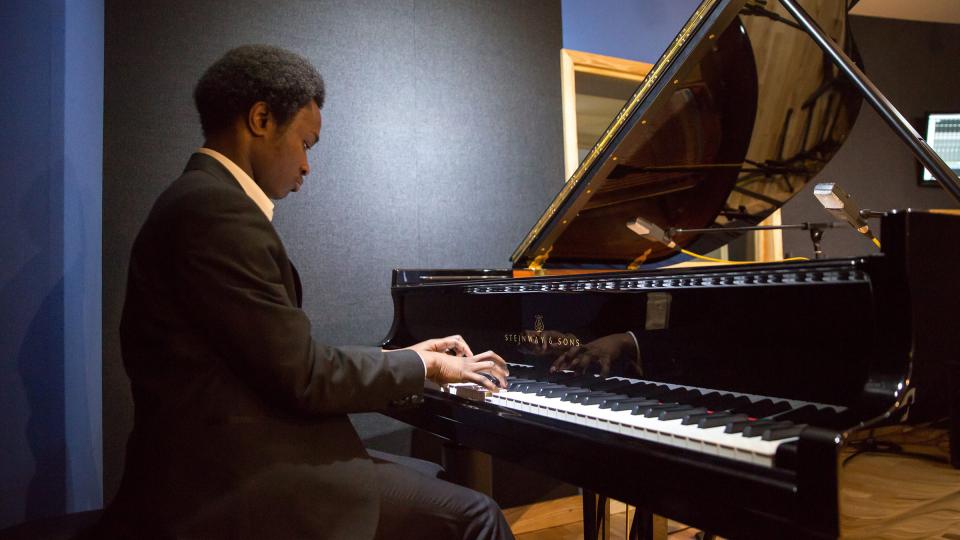
There are a range of potential careers and jobs for music degree graduates. You could go on to work as a:
- solo musician
- songwriter
- composer
- musical arranger
- studio engineer
- music producer
- live sound technician
- sound recordist
- post-production engineer
- broadcast professional.
Alternatively, you may want to explore a related area of study. Please see our postgraduate courses.
How to apply

Head to the UCAS website where you can apply using:
- our institution code - W05
- the UCAS course code (below)
Want to ask us a question first? We would love to hear from you. Contact us free on:
- 0800 036 8888
- courses@uwl.ac.uk
We may invite you to an audition and interview at the university. Find out more about the audition process and what happens on the day.
Apply for this course
- Institution code
- W05
- UCAS code
- currentVariantData.field_p_cv_ucas_code
Next steps after making your application
We aim to make a decision on your application as quickly as we can. If we need any more information about your qualifications, we will be in touch.
In the meantime, come and visit us and find out more about what studying at UWL is like. Sign up for an open day or join a campus tour.
Visit us and see for yourself
Talk to our tutors and find out about our courses and facilities at our next open day or join a campus tour.
Our prospectus
All of our courses in one place - download now or order a hard copy.
We're here to help
Any questions about a course or studying at UWL? We're here to help - call us on 0800 036 8888 (option 2, Monday – Friday 10am-4pm) or email us on courses@uwl.ac.uk.

You can apply to us in two ways:
- on the UCAS website – you will need our institution code (W05) and the UCAS course code (at the top of this page)
- directly on our website – follow the ‘apply now’ link below
Want to ask us a question first? Our dedicated international students’ team would love to hear from you.
- Contact the team: international@uwl.ac.uk
We may invite you to an audition and interview at the university - or online, if you aren't able to travel here. Find out more about the audition process.
Apply for this course
Next steps after making your application
We aim to make a decision on your application as quickly as we can. If we need any more information about your qualifications, we will be in touch.
In the meantime, come and visit us and find out more about what studying at UWL is like. Sign up for an open day or join a campus tour.
Visit us and see for yourself
Talk to our tutors and find out about our courses and facilities at our next open day or join a campus tour.
Our prospectus
All of our courses in one place - download now or order a hard copy.
We're here to help
Any questions about a course or studying at UWL? We're here to help - call us on 0800 036 8888 (option 2, Monday – Friday 10am-4pm) or email us on courses@uwl.ac.uk.
Search for courses
ARTSFEST
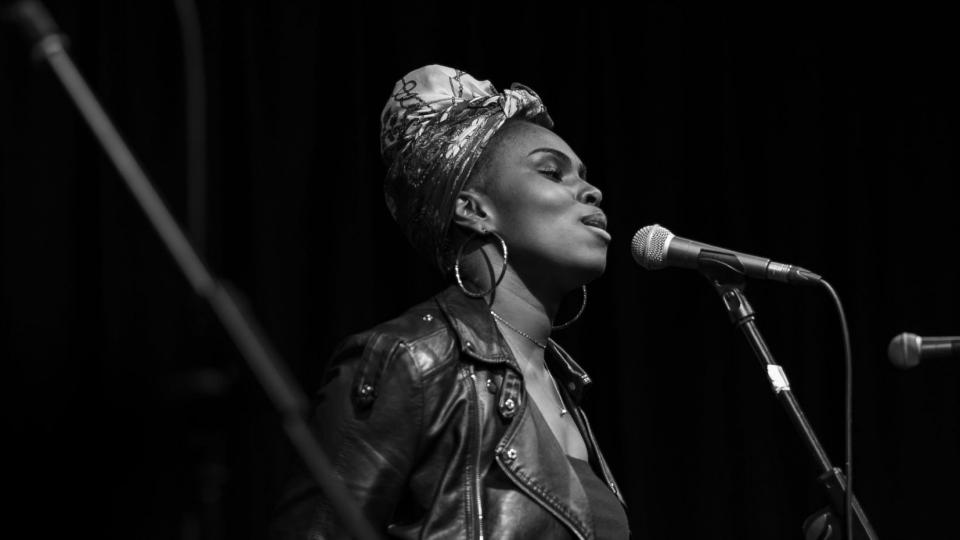
Find out more about the work our students produce and view some of their recent work by visiting our Music Performance and Composition ARTSFEST page.
Facilities
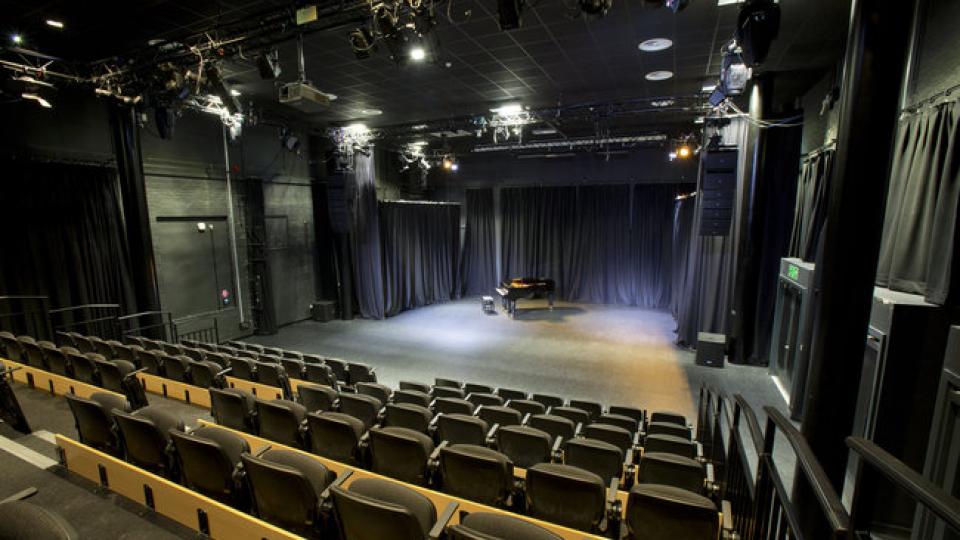
Performance spaces
Our flexible, professionally-equipped performance spaces include Lawrence Hall, a 200-seat black box studio theatre, and Vestry Hall, a classical music performance space featuring a Steinway B Concert Grand piano, concert tuned percussion and seating for up to 150
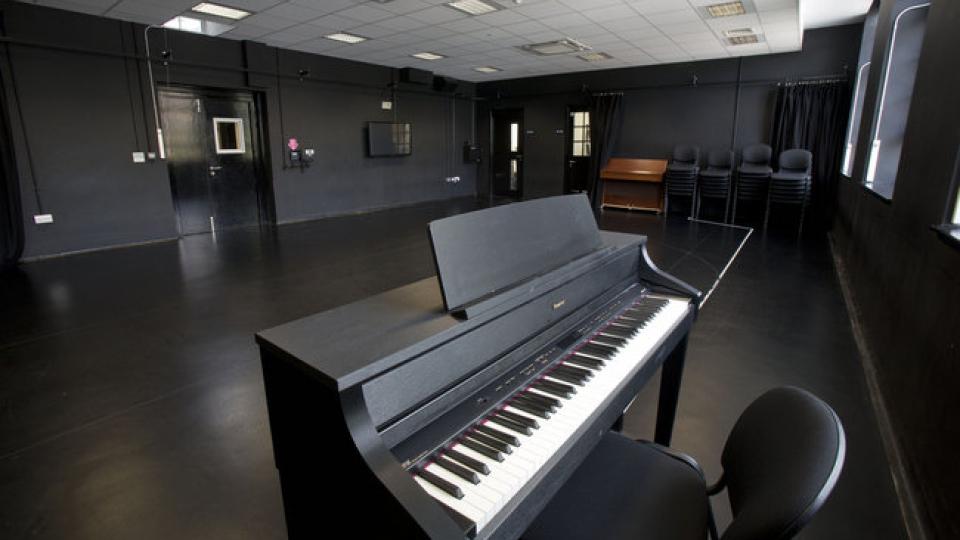
Production studios
We have four black box production rooms featuring performance dance floors, ballet barres, wall mirrors and ¾ drapes. All rooms have PA and AV support in all rooms. The digital stage pianos are by Roland.
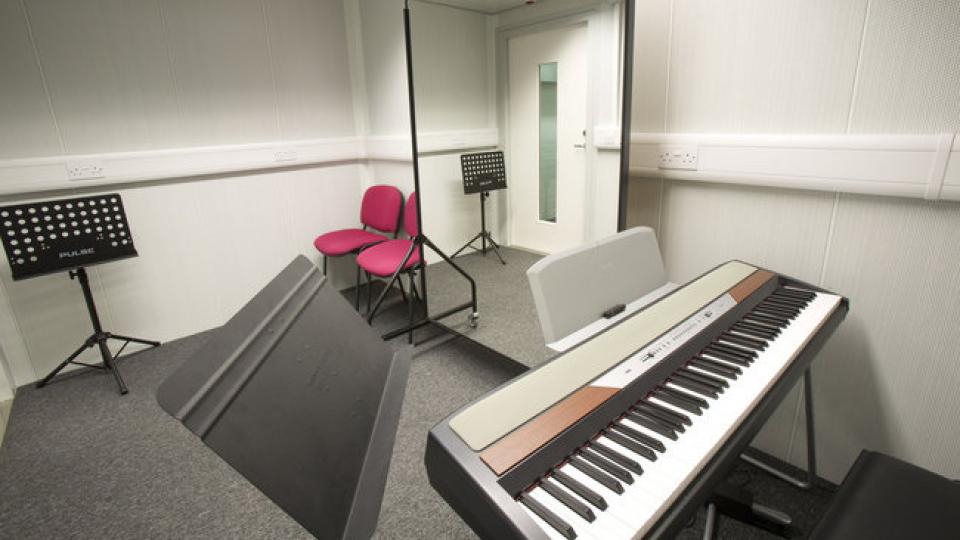
One-to-one teaching pods
We have five acoustically isolated teaching pods featuring Roland and Korg digital pianos and mirrors to facilitate one-to-one teaching in voice.
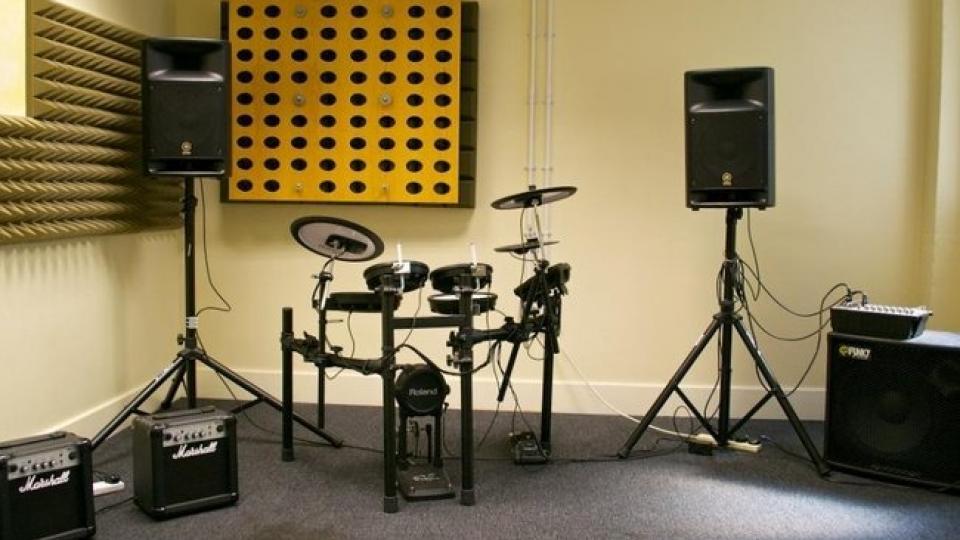
Music performance rooms
All music performance rooms feature drums and backline plus PA support.
- Drums by Roland and Pearl.
- Backline by Marshall, Orange, Line 6, Fender and Gallien-Kruger
- Stage pianos by Korg and Roland
- Synths by Roland and Kurzwiel
- PA by Yamaha, ABT and Nexo.
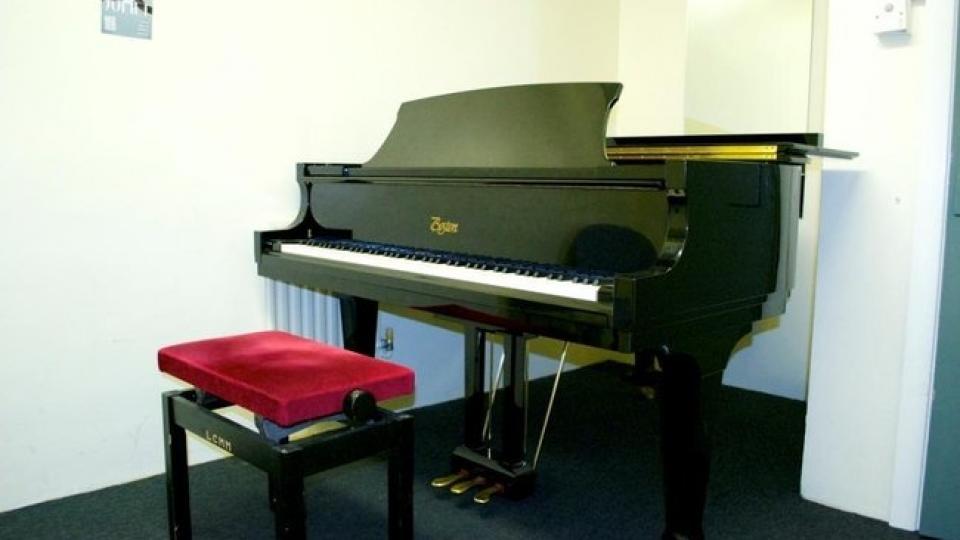
Basement practice rooms
- All LCM practice rooms benefit from LCM’s All Steinway School status to bring you the very best instruments.
- Three percussion practice and teaching rooms.
- Percussion rooms feature Pearl kits with recording and playback systems.
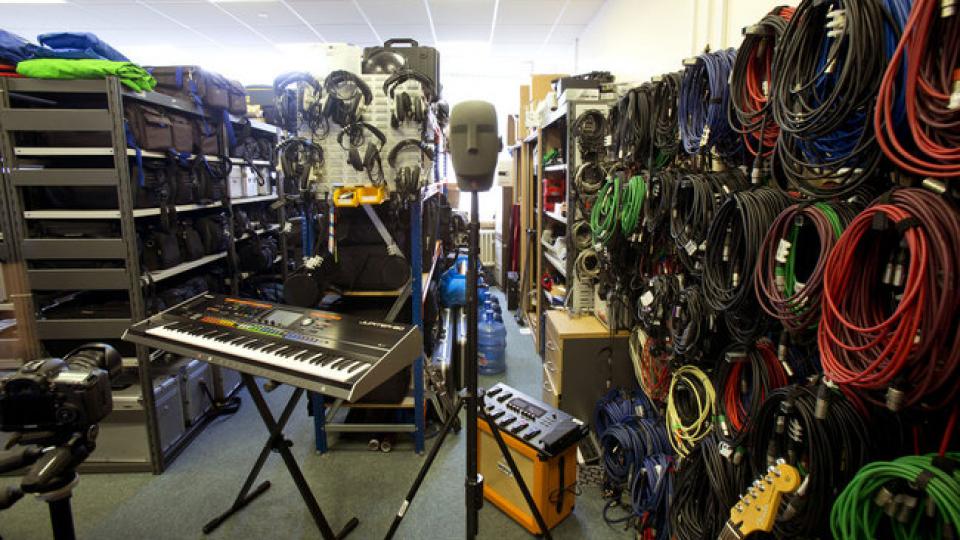
Media Resource Centre
At our Media Resource Centre (used by all subject areas) you'll find extensive portable audio recording systems, including up to 24 track digital HD recording and portable Focusrite RedNet systems.
There is also video-camera and accessory support, including LED and tungsten lighting systems, track and dolly systems and stedi-cam rigs.
Student life at UWL
Important notes for applicants
Disclaimer
*Modern universities - defined as higher education institutions that were granted university status in, and subsequent to, 1992.
**The National Student Survey 2023 and 2024 - Average of answers to all questions by registered student population. Excludes specialist institutions.
Testimonials - our students or former students provided all of our testimonials - often a student from the course but sometimes another student. For example, the testimonial often comes from another UWL student when the course is new.
Optional modules - where optional modules are offered they will run subject to staff availability and viable student numbers opting to take the module.
Videos - all videos on our course pages were accurate at the time of filming. In some cases a new Course Leader has joined the University since the video was filmed.
Availability of placements - if you choose a course with placement/internship route we would like to advise you that if a placement/internship opportunity does not arise when you are expected to undertake the placement then the University will automatically transfer you to the non-internship route, this is to ensure you are still successful in being awarded a degree.



